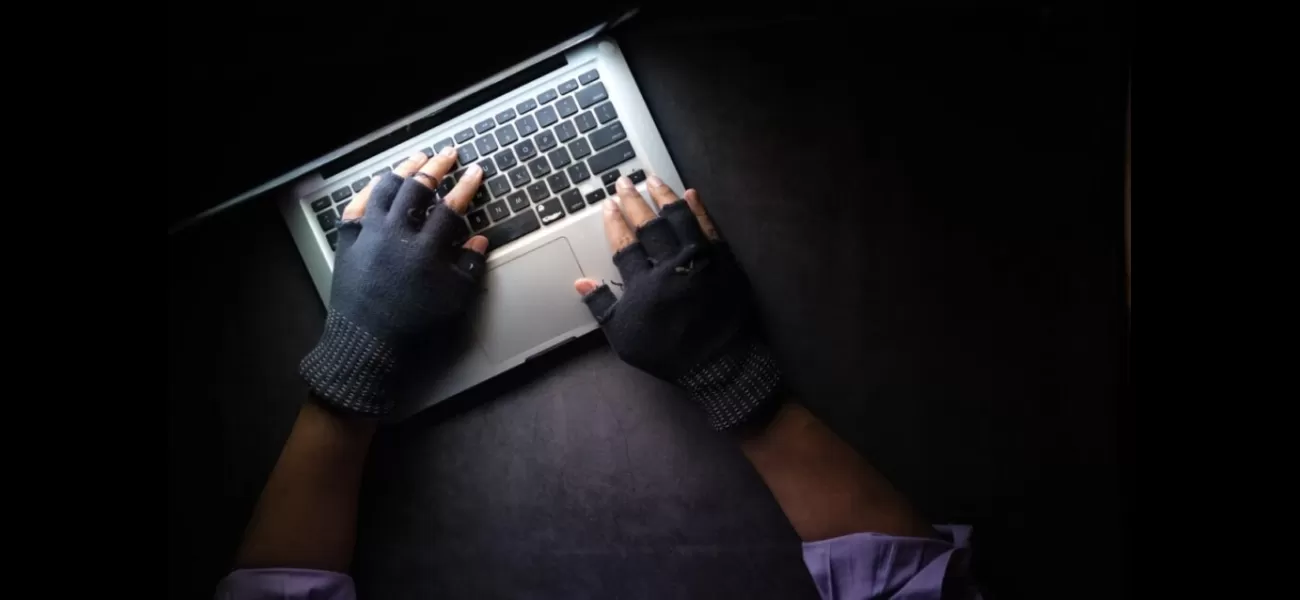Man accused of stalking ex-girlfriend online and paid people to take photos.
A guy is hiring people to stalk his former partner.
July 8th 2024.

In a deeply unsettling case, Dominique Ward, a mother of three from Chicago, has come forward with shocking allegations of cyberstalking and electronic harassment against her ex-partner and the father of her twin daughters, Micah Berkley. Ward claims that Berkley has been using social media to gather information about their children, even offering monetary incentives for photos and videos of the twins.
This disturbing situation began in 2020 after the two broke up, but it has recently escalated to a new level of invasion of privacy for Ward. According to an article in the Los Angeles Daily News, Ward was taken aback when she stumbled upon a Facebook post by Berkley containing recent pictures of their twin daughters on a shopping trip to Target in 2022. In the post, Berkley wrote, "I got to see you the other day... What you don't know is that there is a community of love surrounding you, sending Daddy pictures and videos..." This instance of cyberstalking has left Ward feeling violated and unsafe.
The extent of Berkley's electronic harassment is deeply concerning. He has allegedly been offering varying amounts of money for different types of information, from "$25 per photo" and "$50 for videos" to an alarming $10,000 for anyone who can bring the girls to him for "a peaceful, arranged meeting." Berkley has admitted to these actions, claiming that it is a form of "technological warfare" intended to frighten Ward.
Despite Ward's efforts to seek help, she has faced significant obstacles. Law enforcement and social media platforms have been largely unresponsive to her pleas, highlighting the difficulties in addressing cyberstalking and electronic harassment. An analysis of police data in Illinois has revealed a concerning trend - arrests for electronic harassment are rare, even as complaints continue to increase. Ward's attorney, Lindsay Nathan, has also faced challenges in finding recourse for her client. Their attempts to involve the Chicago police, Cook County prosecutors, and Facebook have been met with explanations of why action cannot be taken. This lack of response highlights a larger issue in dealing with modern forms of intimidation, such as cyberstalking.
Experts point out that while state laws have evolved to address electronic harassment, law enforcement and judicial systems often struggle to keep up with the ever-evolving landscape of technology. Ward's experiences with the Chicago Police Department exemplify this gap, as officers have cited difficulties in proving Berkley's direct involvement and prosecutors have been hesitant to take action.
This case is a reminder of the serious consequences of cyberstalking and electronic harassment, and the urgent need for better systems and protocols in place to protect victims and hold perpetrators accountable. As the world becomes increasingly digital, it is crucial for authorities to prioritize addressing these forms of abuse and provide support for those who are affected.
This disturbing situation began in 2020 after the two broke up, but it has recently escalated to a new level of invasion of privacy for Ward. According to an article in the Los Angeles Daily News, Ward was taken aback when she stumbled upon a Facebook post by Berkley containing recent pictures of their twin daughters on a shopping trip to Target in 2022. In the post, Berkley wrote, "I got to see you the other day... What you don't know is that there is a community of love surrounding you, sending Daddy pictures and videos..." This instance of cyberstalking has left Ward feeling violated and unsafe.
The extent of Berkley's electronic harassment is deeply concerning. He has allegedly been offering varying amounts of money for different types of information, from "$25 per photo" and "$50 for videos" to an alarming $10,000 for anyone who can bring the girls to him for "a peaceful, arranged meeting." Berkley has admitted to these actions, claiming that it is a form of "technological warfare" intended to frighten Ward.
Despite Ward's efforts to seek help, she has faced significant obstacles. Law enforcement and social media platforms have been largely unresponsive to her pleas, highlighting the difficulties in addressing cyberstalking and electronic harassment. An analysis of police data in Illinois has revealed a concerning trend - arrests for electronic harassment are rare, even as complaints continue to increase. Ward's attorney, Lindsay Nathan, has also faced challenges in finding recourse for her client. Their attempts to involve the Chicago police, Cook County prosecutors, and Facebook have been met with explanations of why action cannot be taken. This lack of response highlights a larger issue in dealing with modern forms of intimidation, such as cyberstalking.
Experts point out that while state laws have evolved to address electronic harassment, law enforcement and judicial systems often struggle to keep up with the ever-evolving landscape of technology. Ward's experiences with the Chicago Police Department exemplify this gap, as officers have cited difficulties in proving Berkley's direct involvement and prosecutors have been hesitant to take action.
This case is a reminder of the serious consequences of cyberstalking and electronic harassment, and the urgent need for better systems and protocols in place to protect victims and hold perpetrators accountable. As the world becomes increasingly digital, it is crucial for authorities to prioritize addressing these forms of abuse and provide support for those who are affected.
[This article has been trending online recently and has been generated with AI. Your feed is customized.]
[Generative AI is experimental.]
0
0
Submit Comment





